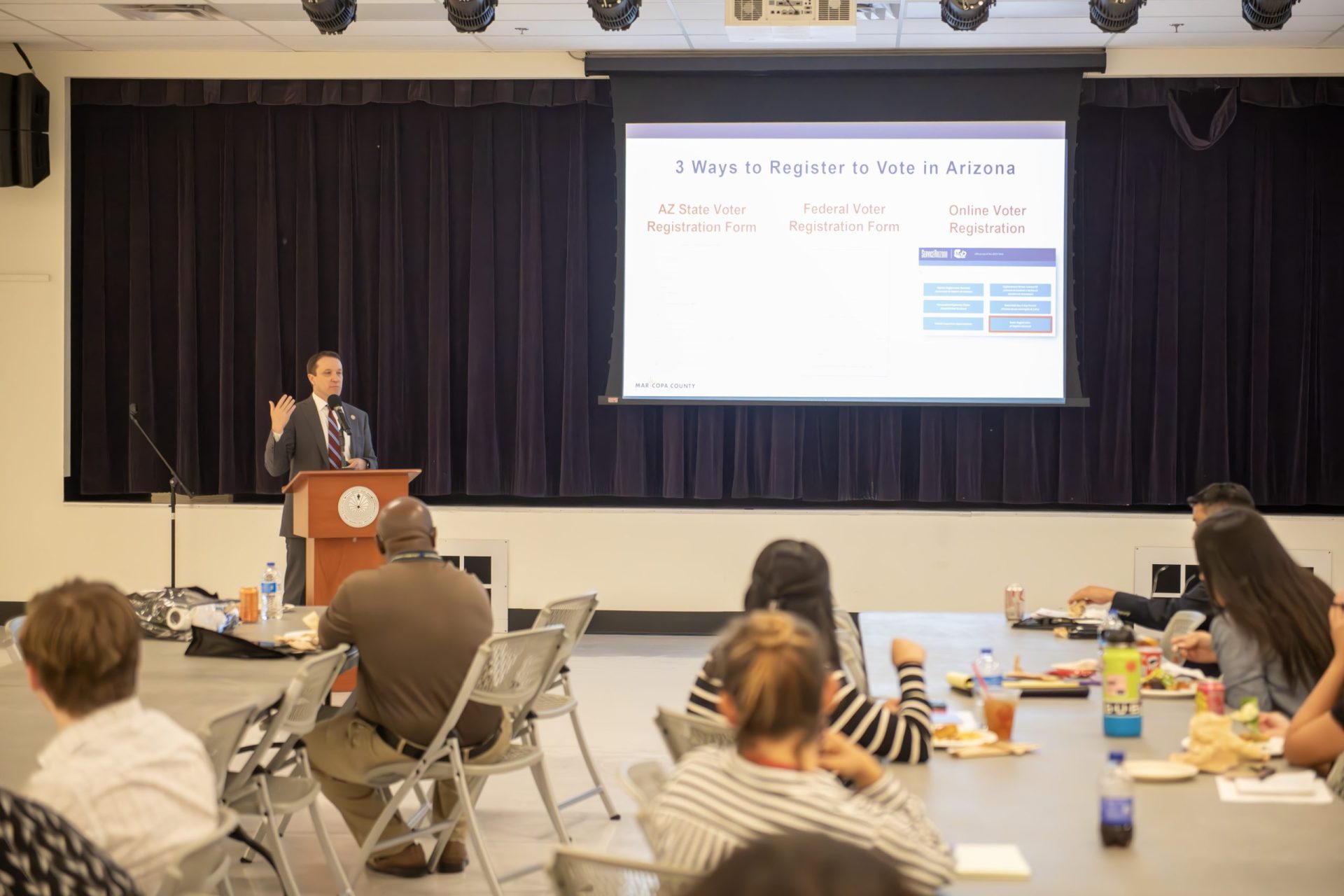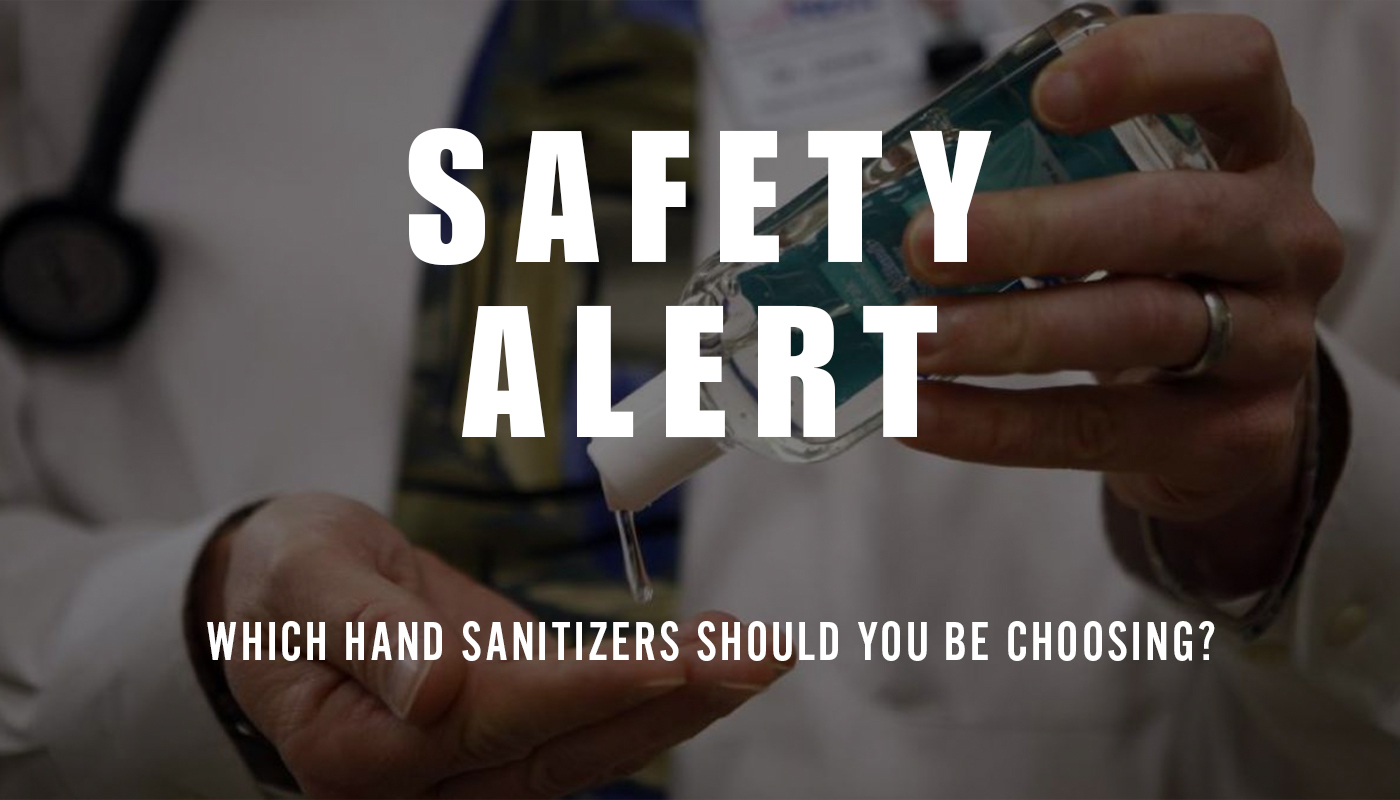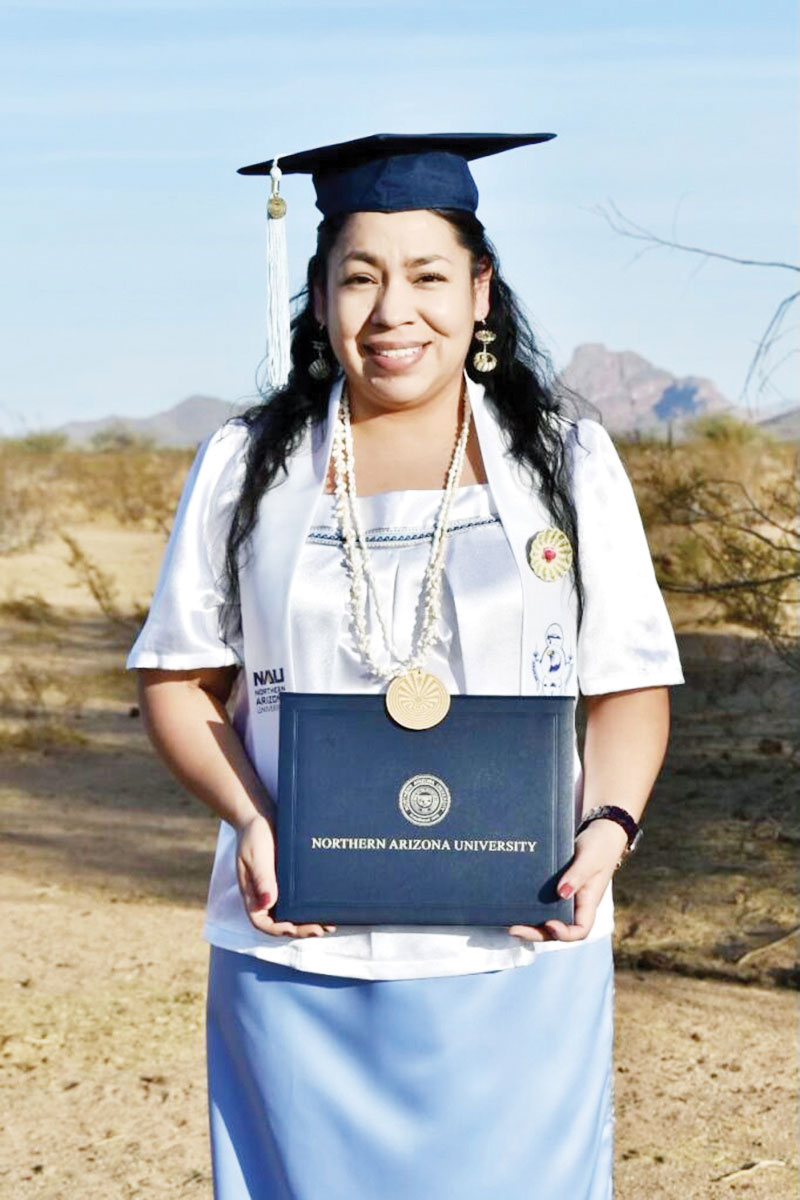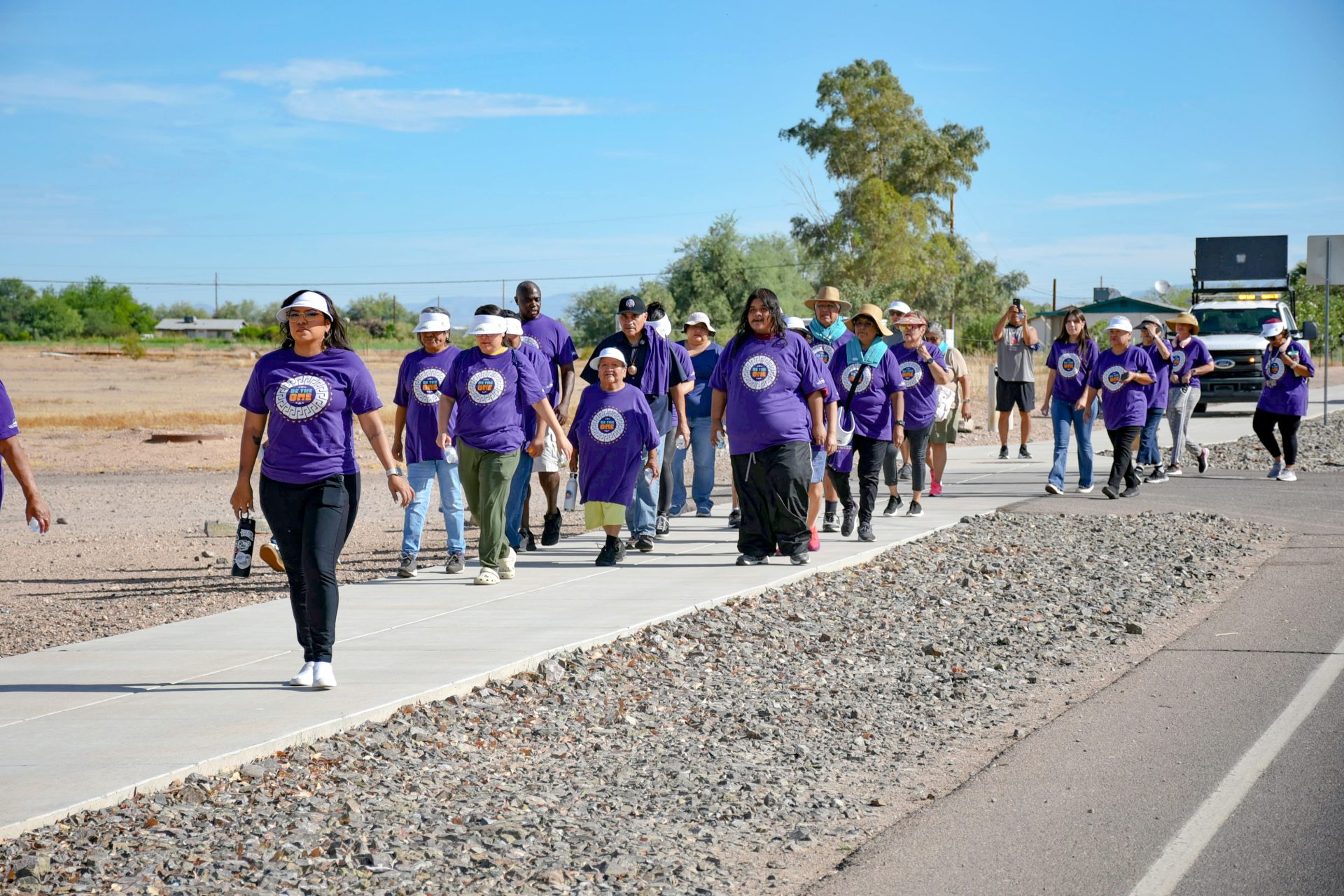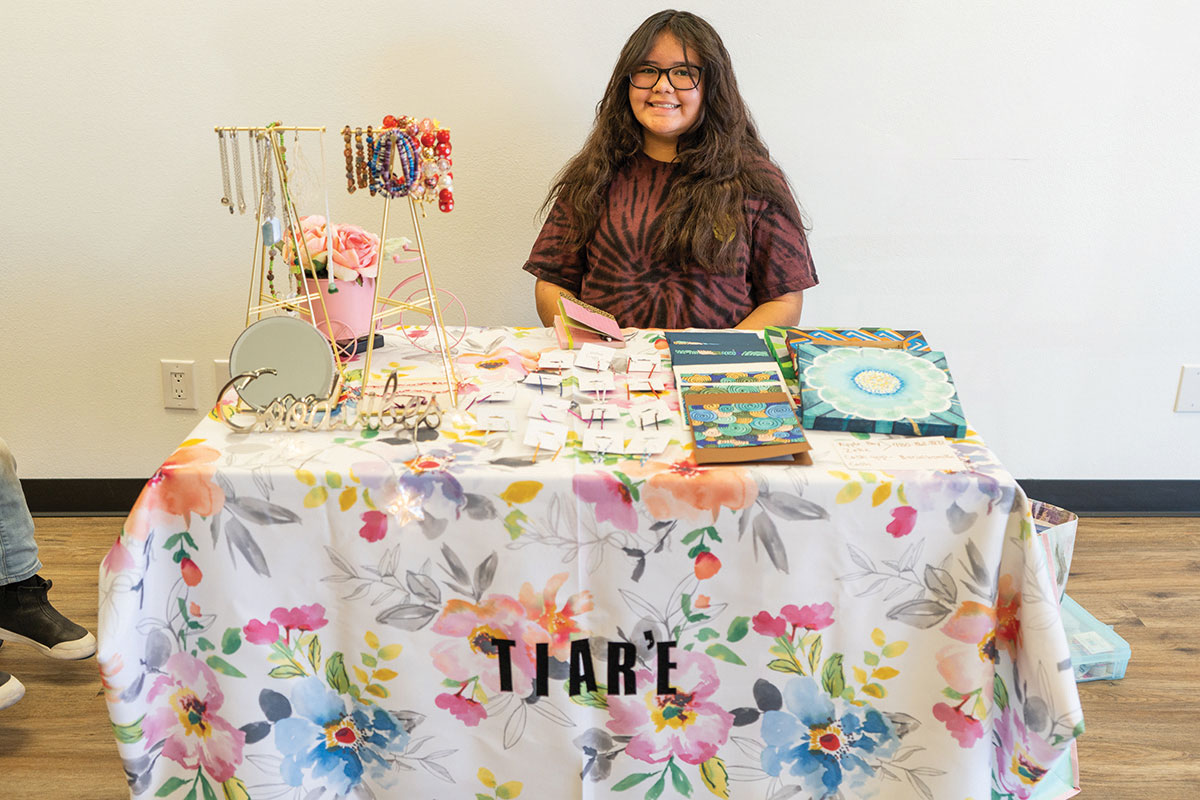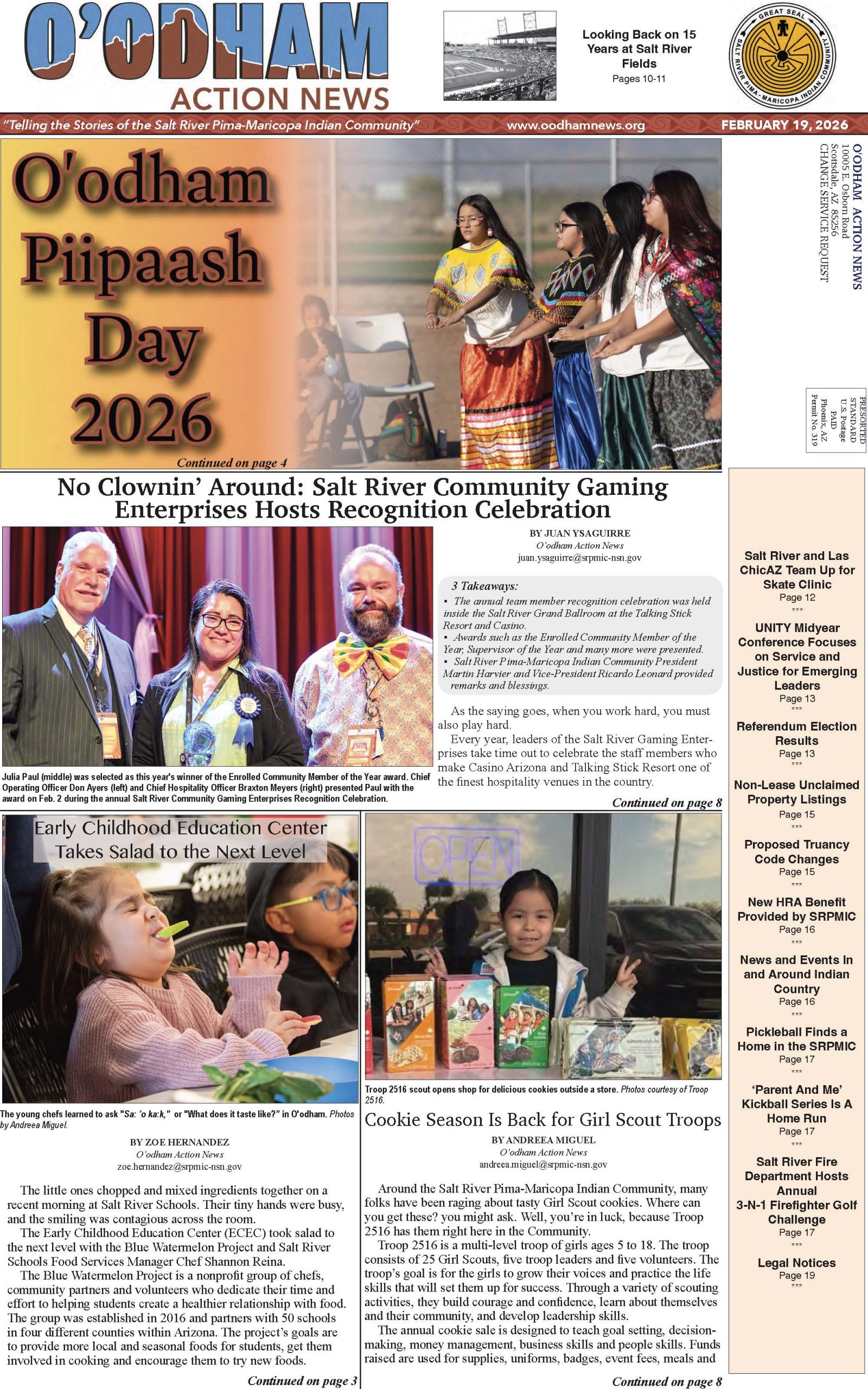VIEWS: 1651
May 21, 2024Inter-Tribal Voting Seminar Brings Tribes and County Recorder Offices Together to Solve Issues
Local tribal leaders and staff members from county recorder offices came together on April 30 at the Community Building in the Salt River Pima-Maricopa Indian Community for an inter-tribal voting seminar. The seminar was organized by the SRPMIC Office of Congressional and Legislative Affairs (OCLA) with the help of the Get Out The Vote (GOTV) ad hoc committee.
Former OCLA staff member Angela Willeford was instrumental in the outreach to the organizations and tribes who attended the seminar.
The purpose of the seminar was to exchange ideas and concerns related to voting and to educate all invited parties on the unique situations that arise for voters in Arizona’s Indian Country, particularly in Pinal, Pima and Maricopa counties.
“We all know that [Native American voters] can make a difference in elections,” SRPMIC Vice-President Ricardo Leonard began. “The earlier we are prepared to engage our voters, the better the results will come.”
SRPMIC Council members Mikah Carlos and Jacob Butler attended the seminar, and Gary Bohnee, special assistant for the OCLA, emceed the event.
“This [seminar] is a team effort. We need to call on volunteers in tribal departments to help us with events like today,” said Bohnee. “We know that there is more complexity in elections that are taking place. The laws are changing, so we need to do things right.”
The Inter-Tribal Council of Arizona (ITCA) kicked off the seminar to share information about the election resources and programs available to tribes and tribal members throughout the state.
A lot of what the ITCA focuses on when it comes to the Native vote is voter registration and a Get Out the Vote campaign, according to Alexander Castillo-Nunez, ITCA civic engagement coordinator.
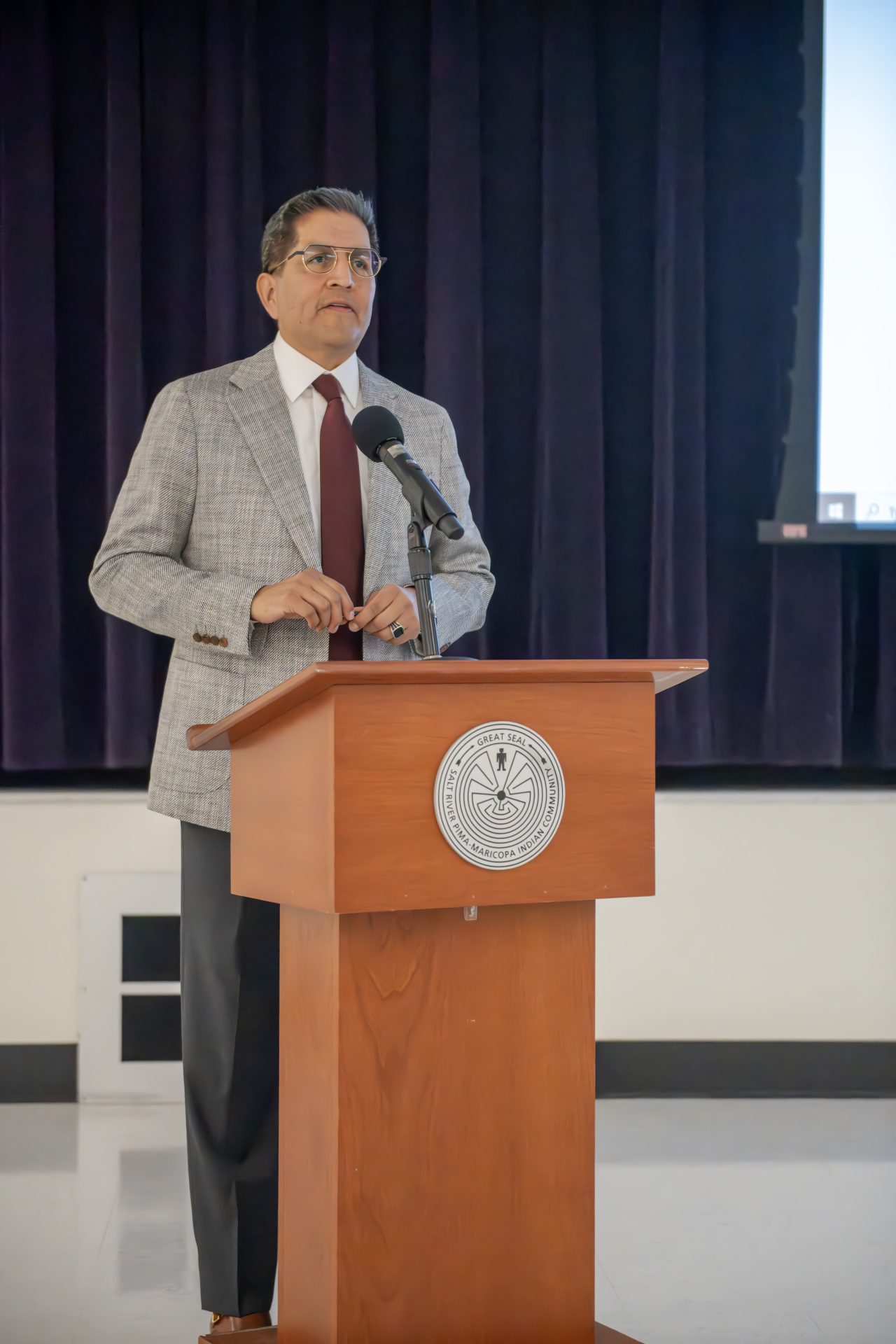
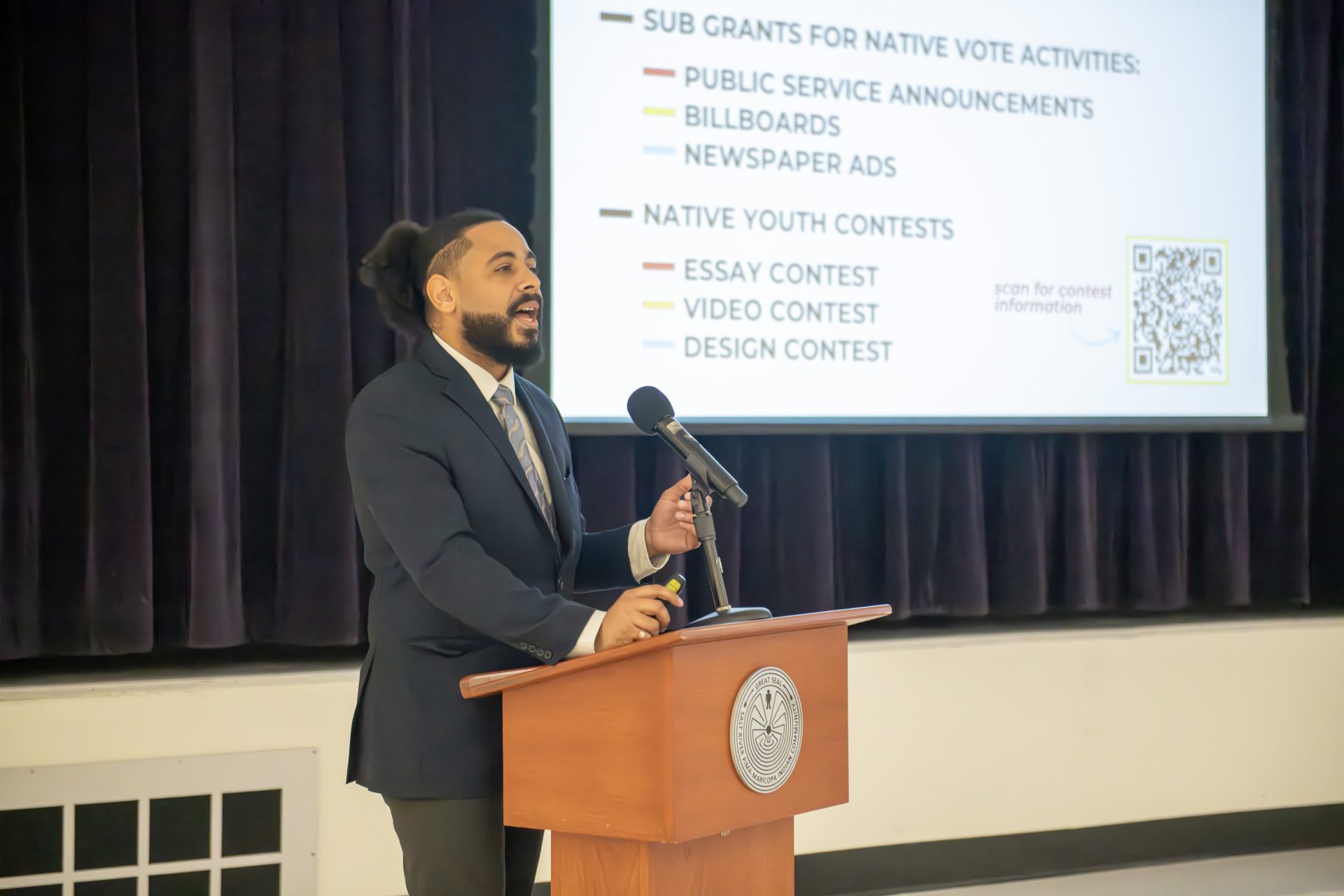
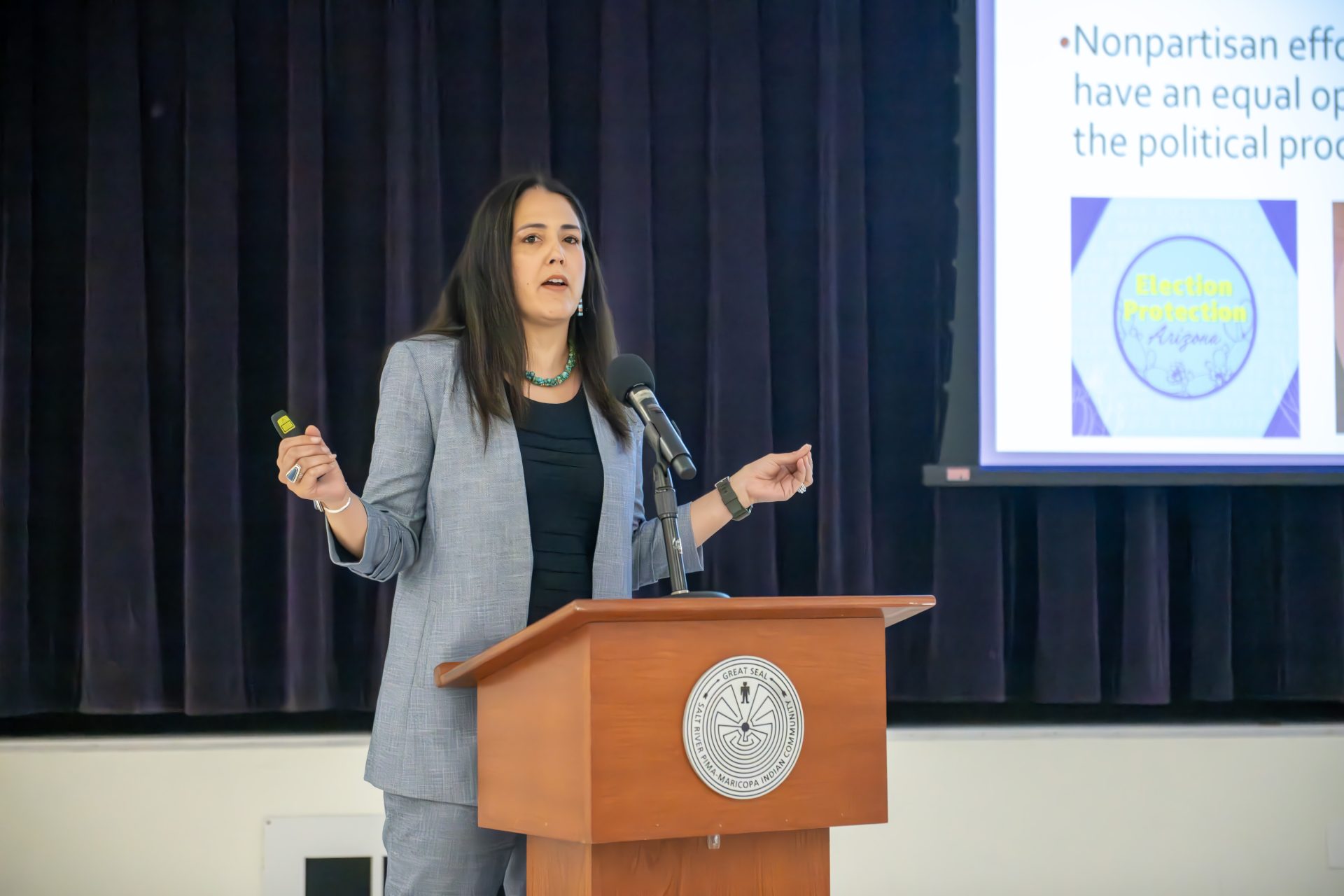
The ITCA utilizes a unique URL code from the Arizona Secretary of State’s office to help register people to vote. Their Arizona Native Vote Protection Hotline helps voters confirm their registration status, report incidents at the polls and find their polling places. Other ways that the ITCA engages voters include through public service announcements, billboards, newspaper ads, and essay, video and design contests for Native youth.
Patty Ferguson Bohnee from Arizona State University’s Indian Legal Clinic talked about the clinic and some of the voting issues it has seen and is currently working on.
“Everything that we are doing is nonpartisan, and our goal is to ensure that all voters have an equal opportunity to participate in the political process,” said Ferguson Bohnee.
She addressed issues facing many tribal members in the state, including using their tribal IDs when voting and some voters using mile markers as addresses.
Later in the seminar, employees and elected officials of Maricopa County, Pima County and Pinal County, including Pinal County Recorder Dana Lewis, reported on their voting issues, achievements and concerns.
One of the issues that Pinal County faces, according to Lewis, is being sandwiched between Pima and Maricopa counties. Lewis said that Pinal County is at a disadvantage compared to the counties with a higher population because they have more television and radio stations to get information out to voters.
The seminar capped off with facilitated roundtable discussions between tribes and county recorder teams.
Arizona Secretary of State Adrian Fontes was scheduled to appear, but he was unable to attend.

